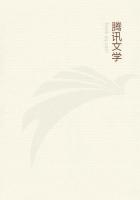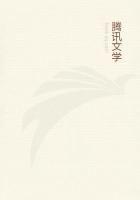by Francis Thompson The Church, which was once the mother of poets no less than of saints, during the last two centuries has relinquished to aliens the chief glories of poetry, if the chief glories of holiness she has preserved for her own.The palm and the laurel, Dominic and Dante, sanctity and song, grew together in her soil: she has retained the palm, but forgone the laurel.Poetry in its widest sense, and when not professedly irreligious, has been too much and too long among many Catholics either misprised or distrusted; too much and too generally the feeling has been that it is at best superfluous, at worst pernicious, most often dangerous.Once poetry was, as she should be, the lesser sister and helpmate of the Church; the minister to the mind, as the Church to the soul.But poetry sinned, poetry fell; and, in place of lovingly reclaiming her, Catholicism cast her from the door to follow the feet of her pagan seducer.The separation has been ill for poetry; it has not been well for religion.
Fathers of the Church (we would say), pastors of the Church, pious laics of the Church: you are taking from its walls the panoply of Aquinas--take also from its walls the psaltery of Alighieri.Unroll the precedents of the Church's past; recall to your minds that Francis of Assisi was among the precursors of Dante; that sworn to Poverty he forswore not Beauty, but discerned through the lamp Beauty the Light God; that he was even more a poet in his miracles than in his melody; that poetry clung round the cowls of his Order.
Follow his footsteps; you who have blessings for men, have you no blessing for the birds? Recall to your memory that, in their minor kind, the love poems of Dante shed no less honour on Catholicism than did the great religious poem which is itself pivoted on love;that in singing of heaven he sang of Beatrice--this supporting angel was still carven on his harp even when he stirred its strings in Paradise.What you theoretically know, vividly realise: that with many the religion of beauty must always be a passion and a power, that it is only evil when divorced from the worship of the Primal Beauty.Poetry is the preacher to men of the earthly as you of the Heavenly Fairness; of that earthly fairness which God has fashioned to His own image and likeness.You proclaim the day which the Lord has made, and Poetry exults and rejoices in it.You praise the Creator for His works, and she shows you that they are very good.
Beware how you misprise this potent ally, for hers is the art of Giotto and Dante: beware how you misprise this insidious foe, for hers is the art of modern France and of Byron.Her value, if you know it not, God knows, and know the enemies of God.If you have no room for her beneath the wings of the Holy One, there is place for her beneath the webs of the Evil One: whom you discard, he embraces; whom you cast down from an honourable seat, he will advance to a haughty throne; the brows you dislaurel of a just respect, he will bind with baleful splendours; the stone which you builders reject, he will make his head of the corner.May she not prophesy in the temple? then there is ready for her the tripod of Delphi.Eye her not askance if she seldom sing directly of religion: the bird gives glory to God though it sings only of its innocent loves.Suspicion creates its own cause; distrust begets reason for distrust.This beautiful, wild, feline Poetry, wild because left to range the wilds, restore to the hearth of your charity, shelter under the rafter of your Faith; discipline her to the sweet restraints of your household, feed her with the meat from your table, soften her with the amity of your children; tame her, fondle her, cherish her--you will no longer then need to flee her.
Suffer her to wanton, suffer her to play, so she play round the foot of the Cross!
There is a change of late years: the Wanderer is being called to her Father's house, but we would have the call yet louder, we would have the proffered welcome more unstinted.There are still stray remnants of the old intolerant distrust.It is still possible for even a French historian of the Church to enumerate among the articles cast upon Savonarola's famous pile, poesies erotiques, tant des anciens que des modernes, livres impies ou corrupteurs, Ovide, Tibulle, Properce, pour ne nommer que les plus connus, Dante, Petrarque, Boccace, tous ces auteurs Italiens qui deje souillaient les ames et ruinaient les moeurs, en creant ou perfectionnant la langue.Blameworthy carelessness at the least, which can class the Vita Nuova with the Ars Amandi and the Decameron! And among many English Catholics the spirit of poetry is still often received with a restricted Puritanical greeting, rather than with the traditionally Catholic joyous openness.
We ask, therefore, for a larger interest, not in purely Catholic poetry, but in poetry generally, poetry in its widest sense.With few exceptions, whatsoever in our best poets is great and good to the non-Catholic, is great and good also to the Catholic; and though Faber threw his edition of Shelley into the fire and never regretted the act; though, moreover, Shelley is so little read among us that we can still tolerate in our Churches the religious parody which Faber should have thrown after his three-volumed Shelley; --in spite of this, we are not disposed to number among such exceptions that straying spirit of light.















